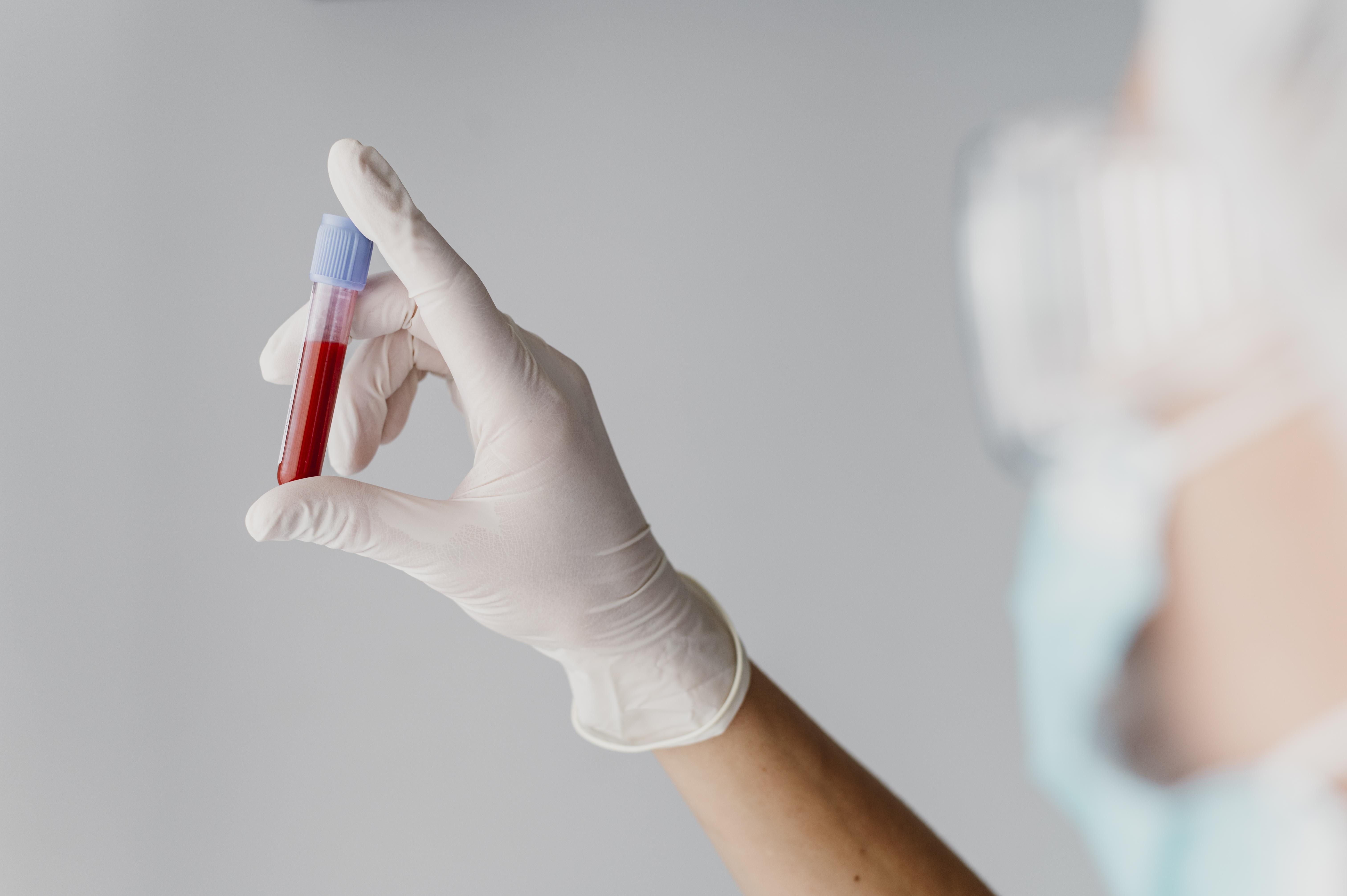Definition
Anti-HBe, or HBeAb (Hepatitis B e-Antibody), is not a protective antibody but is produced in response to HBeAg (Hepatitis B e-Antigen). HBeAg is a protein derived from the Hepatitis B virus, present in the blood during active virus replication.
Anti-HBe plays a crucial role in inhibiting the replication or mutation of the hepatitis B virus within the body. In chronic hepatitis B cases where HBeAg is absent, anti-HBe may sometimes test positive. This antibody generally appears around 14 weeks after exposure to the virus.
The anti-HBe test evaluates whether the replication of the hepatitis B virus has decreased or ceased. It is typically performed on patients who have been diagnosed with hepatitis B.
This test is often conducted alongside others such as HBsAg (Hepatitis B Surface Antigen), HBeAg, anti-HBs (Hepatitis B surface antibody), and anti-HBc (total antibody to hepatitis B core antigen).
Indications
This test is recommended in the following situations:
- To determine the severity of the disease
- To monitor the effectiveness of treatment
- To decide on further treatment plans
It is also performed when hepatitis B symptoms are present, such as:
- Abdominal pain
- Dark-colored urine
- Fever
- Joint pain
- Loss of appetite, nausea, and vomiting
- Fatigue
- Jaundice (yellowing of the skin and eyes)
Contraindications
There are no specific contraindications for the anti-HBe test. It is generally safe for individuals of all ages.
Preparation Before the Test
No special preparation is needed for the anti-HBe test. Fasting is not required, but it is advisable to consult a doctor beforehand for personalized guidance.
Test Procedure
The anti-HBe test uses 0.25–0.5 ml of blood serum, drawn from a vein and collected in a special tube. Laboratory staff wear gloves and personal protective equipment (PPE) during sample collection.
The procedure involves the staff to secure an elastic band on the arm to make veins more visible. They will also clean the puncture site with antiseptic gauze. After that, blood sample will be drawn, usually from the crease of the elbow, and transferring it into a specialized tube. The elastic band will be removed and the puncture site will be cleaned with antiseptic gauze.
This process only takes a few minutes. The collected sample is analyzed in a laboratory, and results are typically available within a few hours.
Normal and Abnormal Values
Normal anti-HBe values are not differentiated by age or gender. Results are generally interpreted as follows:
| Value | Interpretation |
| Non-reactive | Negative |
| Reactive | Positive |
Results and Recommendations (Further Testing)
Negative
A negative anti-HBe result may indicate an acute infection in its early stages, before significant viral replication occurs. Other interpretations include:
- Ongoing hepatitis B therapy has not been successful.
- The hepatitis B virus continues to replicate.
- Antibodies are unable to inhibit replication due to drug resistance.
Positive
A positive anti-HBe test result signifies the following:
- During treatment, a positive anti-HBe result combined with a negative HBeAg outcome is an encouraging indicator for individuals with hepatitis B. This result suggests that the immune system has successfully suppressed viral replication, indicating the effectiveness of the administered therapy.
- Chronic infection: A positive anti-HBe result may reflect chronic hepatitis B infection, where the virus continues to replicate actively within the body, but the antibodies are unable to effectively counter or inhibit this replication.
- Late-stage acute hepatitis B infection: This result may also indicate the final stage of an acute hepatitis B infection.
- Immunity from a prior infection: A positive anti-HBe result can suggest a history of hepatitis B infection, with the immune system now providing protection against reinfection.
- Seroconversion phase: Seroconversion occurs when anti-HBe results transition from negative to positive, while HBeAg results shift from positive to negative. This phase indicates a reduction or cessation of viral replication in the bloodstream. Seroconversion can occur spontaneously or as a result of therapeutic intervention.
Consult the Right Doctor
For positive anti-HBe test results, it is recommended to consult a general practitioner for a proper diagnosis, therapy, and any necessary follow-up tests to confirm the findings.
If additional expertise is required, consulting an internal medicine specialist is advisable. Pediatric patients may benefit from consulting a pediatrician, who can provide tailored information and therapeutic guidance.
Alternatively, you may seek advice regarding anti-HBe test results using the Ai Care application, available for download on the Playstore or Appstore.
Interested in learning more about laboratory, radiology, and other test results? Click here!
- dr Nadia Opmalina
What is Anti-HBe? What Does the Anti-HBe score mean in hepatitis B test?. (2022). Retrieved 06 September 2022, from https://www.vinmec.com/en/news/health-news/general-health-check/what-is-anti-hbe-what-does-the-anti-hbe-score-mean-in-a-hepatitis-b-test/
Interpretation of Hepatitis B Serologic. (2022). Retrieved 05 September 2022, from https://www.cdc.gov/hepatitis/hbv/pdfs/serologicchartv8.pdf
Hepatitis B Blood Test. (2022). Retrieved 05 September 2022, from https://www.hepb.org/prevention-and-diagnosis/diagnosis/hbv-blood-tests/
Understanding Your Test Results. (2022). Retrieved 05 September 2022, from https://www.hepb.org/prevention-and-diagnosis/diagnosis/understanding-your-test-results/
Other Tests. (2022). Retrieved 06 September 2022, from https://www.hepb.org/prevention-and-diagnosis/diagnosis/other-tests/
Hepatitis B. (2020). Retrieved 05 September 2022, from https://www.webmd.com/hepatitis/digestive-diseases-hepatitis-b
Hepatitis B. (2022). Retrieved 05 September 2022, from https://www.healthline.com/health/hepatitis-b#fa-qs
Hepatitis B Testing. (2022). Retrieved 05 September 2022, from https://www.testing.com/tests/hepatitis-b-test/
Hepatitis Panel. (2022). Retrieved 05 September 2022, from https://medlineplus.gov/lab-tests/hepatitis-panel/
Anti-HBe (Anti-Hepatitis B e-antigen). Retrieved 06 September 2022, from https://publichealthlab.ca/reportingname/anti-hbe-anti-hepatitis-b-e-antigen/












